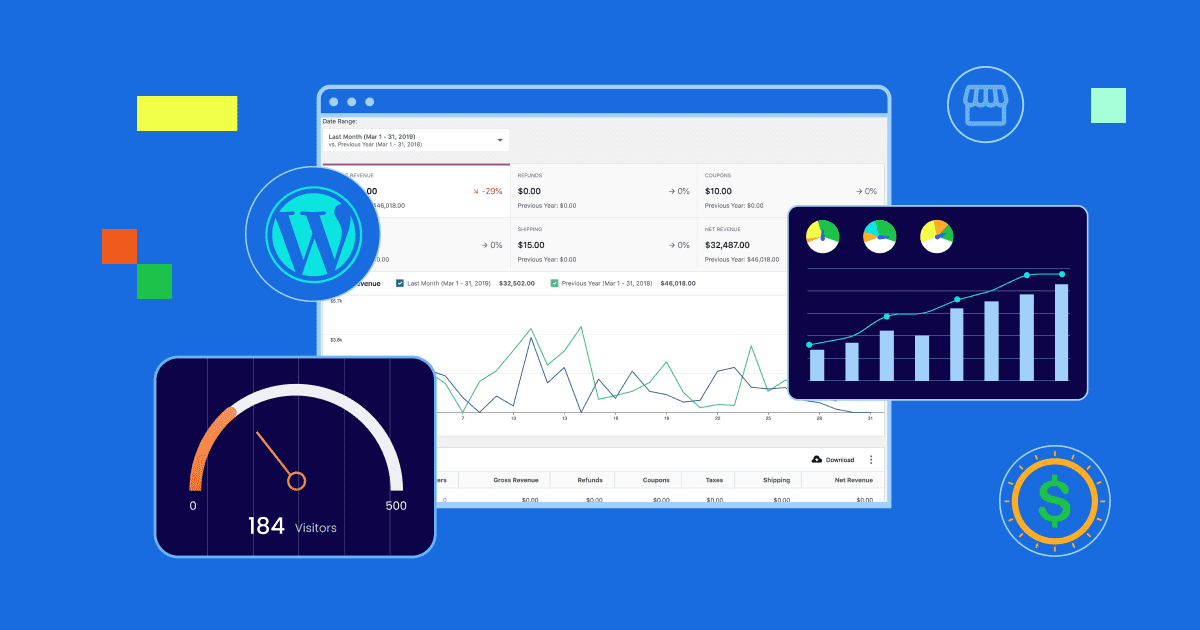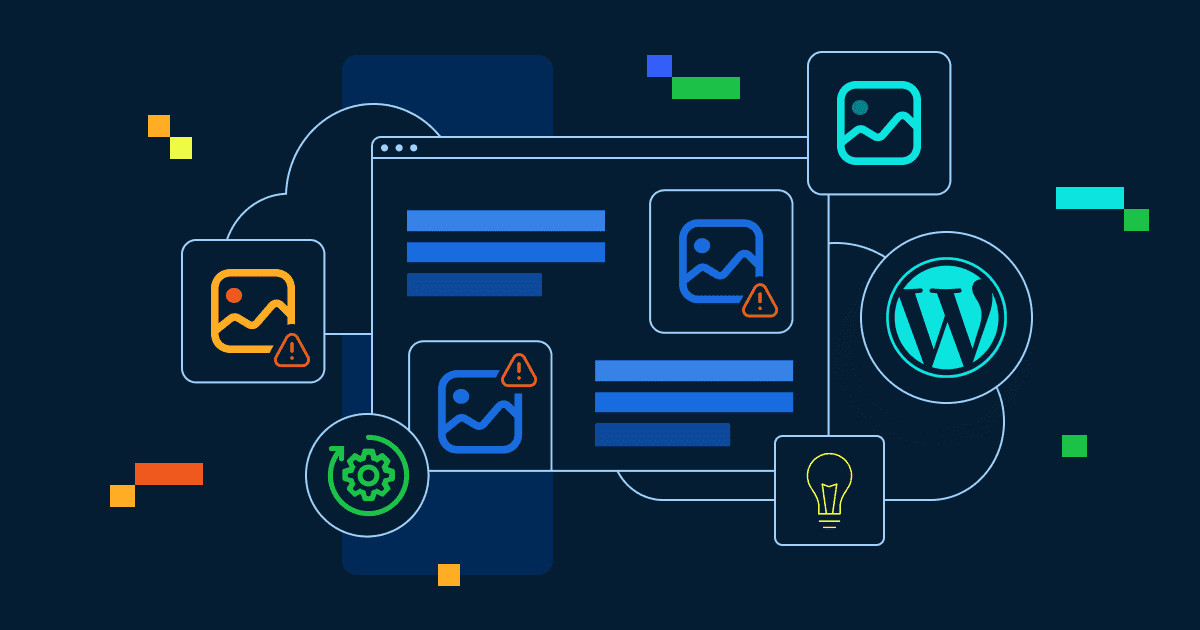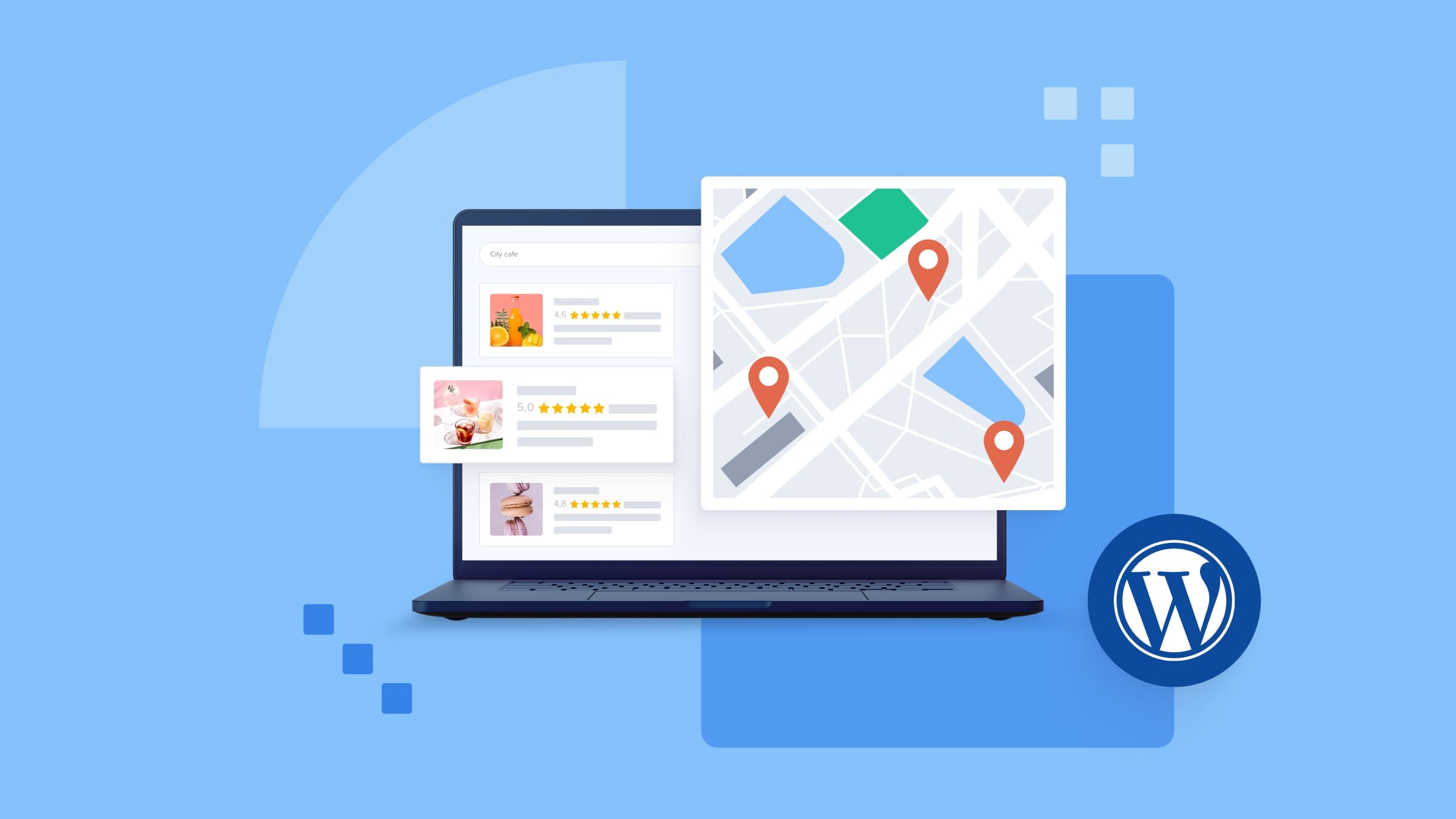Key highlights
- Discover why agencies should prioritize client monetization in 2026 and shift from cost centers to profit-driving partners.
- Learn how to monetize WordPress websites with six proven strategies including affiliate marketing, memberships, online courses, ads, donations and eCommerce.
- Leverage recurring revenue models like subscriptions and memberships to build sustainable, predictable income streams.
- Optimize every monetized WordPress site with the right hosting, backups, security and analytics tools to protect and grow revenue.
- Empower your agency with Bluehost hosting, SEO tools and the Agency Partner Program to deliver scalable, revenue-first websites.
For agencies managing WordPress websites, the role has evolved far beyond design, hosting and maintenance. Today, clients expect more, they want their websites to work as revenue-generating machines.
A beautiful design is valuable, but a website that consistently drives income? That’s what keeps clients loyal and makes agencies indispensable.
With WordPress powering over 40% of the web, agencies have a unique opportunity to monetize WordPress websites and transform client sites into scalable business assets.
From online stores and memberships to affiliate programs and ad revenue, WordPress offers the flexibility to match any client’s goals.
This guide explores the most effective ways agencies can help clients monetize their WordPress sites. Along the way, you’ll see how focusing on revenue-first solutions doesn’t just benefit your clients, it also creates new recurring revenue opportunities for your agency.
Why should agencies prioritize client monetization in 2026?
When agencies help clients generate income online, they move from being perceived as a cost center to a profit-driving partner. This shift builds loyalty, retention and referrals.
In fact, the creator economy is projected to reach $480 billion by 2027, underlining how monetization is becoming core to digital business models.
But why focus on WordPress monetization in particular? Because WordPress offers agencies a proven, scalable foundation to build revenue-first websites.
Why WordPress monetization should be a top agency priority:
- Massive market share: With WordPress powering over 40% of all websites, most clients are already on the platform, making monetization a natural next step.
- Plugin ecosystem: Thousands of WordPress plugins (WooCommerce, YITH Subscriptions, MemberPress, etc.) allow agencies to tailor monetization strategies to fit any client’s business model.
- Low barrier, high ROI: Many monetization tools are cost-effective, allowing clients to start small and scale revenue as their digital presence grows.
- Flexibility for every client type: From content creators to service providers and online stores, WordPress adapts to multiple monetization models seamlessly.
- Reliability and security: With managed WordPress hosting, backup solutions (CodeGuard) and protection tools (SiteLock), agencies can ensure revenue streams aren’t disrupted.
- Data-driven insights: Built-in analytics and CRM integrations help agencies show measurable ROI. and refine monetization strategies over time.
By showing clients how to monetize WordPress blogs or eCommerce sites, agencies build long-term retention and unlock recurring revenue.
Understand your client’s monetization goals
Every client approaches their WordPress website with different objectives and that’s where agencies can truly differentiate themselves. A one-size-fits-all monetization strategy rarely works, what’s profitable for a podcaster may not be relevant to an online store owner.
By taking time to understand each client’s online business model, you can recommend monetization strategies that align with their goals, audiences and brand identity.
A practical way to do this is by segmenting clients into core personas and mapping their most likely monetization priorities. This not only helps agencies position the right solutions but also ensures clients see a faster return on investment.
| Client type | Monetization priority | Example use case |
| Content creators | Ad revenue, sponsored posts, memberships, tips | Bloggers, podcasters, influencers |
| Service providers | Paid bookings, recurring payments, online courses | Coaches, consultants, agencies |
| Online stores | Product sales, upsells, affiliate links, digital products | Retailers, eCommerce entrepreneurs |
By categorizing clients this way, agencies can create tailored monetization roadmaps. For example:
- A content creator may need a membership site with exclusive content, sponsored blog posts and donation features.
- A service provider benefits more from a learning management system (LMS), subscription billing and tools to sell online courses.
- An online store will prioritize optimizing WooCommerce, easy digital downloads and affiliate integrations to generate revenue.
This segmentation makes it easier to propose the right mix of WordPress plugins, themes and tools to monetize WordPress sites effectively.
Core WordPress monetization strategies agencies can offer in 2026
Once you’ve identified your client’s goals, the next step is to translate those ambitions into actionable monetization efforts. WordPress, as the world’s leading content management system, makes this simple with its ecosystem of plugins, themes and tools.
Whether your client wants to make money blogging, build a membership site or run an online store, WordPress provides flexibility for every model. Below are the six most effective strategies agencies can deploy to make money for their clients.
1. Affiliate Marketing
Affiliate marketing remains one of the simplest and most effective ways to monetize WordPress websites. By embedding an affiliate link into a blog post or review, clients can earn money by promoting relevant brands. Since this strategy relies heavily on traffic and SEO rankings, site performance directly impacts revenue potential.
That’s where Bluehost WordPress hosting makes a difference-delivering the speed and reliability that keep affiliate-driven blogs competitive in search engines and profitable over time.
Pros:
- Low upfront investment, no need to manage inventory
- Scales well as site traffic grows
- Works well alongside other monetization methods
Ideal for:
- Bloggers, niche content creators and review sites
Recommended tools:
- YITH WooCommerce Affiliates – Manage affiliate programs within WooCommerce
- Pretty Links – Shorten and track affiliate URLs with analytics
2. Paid memberships
With a membership site, clients can offer exclusive content and get paid regularly by subscribers. It’s a smart option for influencers, coaches and publishers who want to share premium content beyond a blog.
Pros:
- Predictable, recurring income
- Builds a loyal, engaged audience
- Opportunities for upsells (premium tiers, bundles)
Ideal for:
- Coaches, consultants, influencers or publishers
Recommended tools:
- YITH Membership plugin – Create membership tiers and manage access rules
- Paid Memberships Pro – Flexible membership management with robust reporting and customization tools.
3. Online courses & education
Clients who want to sell online courses can package expertise into digital products with significant value. A WordPress plugin like Sensei LMS or LearnDash helps transform their online course and manage a full learning management system.
Agencies can also integrate email marketing with Creative Mail to nurture students and upsell online courses or selling eBooks.
Also read: How to Sell Online Courses: The Complete Setup and Marketing Guide
Pros:
- Scalable courses can be sold repeatedly with minimal extra cost
- Establishes authority in a niche
- High profit margins compared to physical products
Ideal for:
- Educators, coaches, trainers, agencies offering skill development
Recommended tools:
- YITH Membership Plugin – Designed for WordPress with WooCommerce integration; ideal for creating membership tiers and managing user access.
- LifterLMS – Robust learning management system with advanced course creation, progress tracking and student engagement features.
4. Ad placements and sponsorships
For high-traffic WordPress blogs, display advertising and sponsored content can be lucrative. With Google AdSense or ad networks, agencies can help clients sell ad space, run sponsored blog posts or publish sponsored content that aligns with their target audience. Using Bluehost WordPress hosting, agencies can keep sites fast and stable, helping clients earn more from ads and sponsorships.
Also read: Overview of Google Ads (Formerly Adwords) and How To Use It
Pros:
- Straightforward setup with the right tools
- Flexible as clients can run ads, sponsored posts or partner promotions
- Passive income once traffic is established
Ideal for:
- Bloggers, media publishers, niche content platforms
Recommended tools:
- Advanced Ads Plugin
- Google Site Kit (with Google Analytics integration)
Compliance tip: Ensure proper privacy tools (cookie banners, GDPR/CCPA consent) are in place when running ads.
5. Donations and tipping models
Sometimes, a loyal audience simply wants to support creators for producing valuable content. Adding donation buttons or tipping features helps WordPress users make money online even without selling products. Agencies can use Bluehost SiteLock and CodeGuard to ensure donations and data remain secure.
Pros:
- Easy to set up with minimal overhead
- Works even for smaller audiences with high loyalty
- Flexible, supports both one-time and recurring contributions
Ideal for:
- Nonprofits, independent creators, podcasters and streamers
Recommended tools:
- PayPal Donations Plugin – Add PayPal donation buttons quickly
- YITH Donations for WooCommerce – Advanced donation management with reporting and recurring support.
6. Selling products or merch
The most direct monetization route is selling physical or digital products. From branded merchandise to full eCommerce catalogs, WooCommerce gives clients everything they need to run an online store.
To make it even easier, Bluehost WooCommerce hosting offers an all-in-one solution with hosting, secure payments and pre-installed extensions. This helps agencies launch professional stores faster and scale them with confidence.
Pros:
- Complete ownership of the revenue channel
- Wide range of opportunities (digital downloads, merch, subscription boxes)
- Scales with add-ons like upsells and cross-sells
Ideal for:
- Retailers, creators with a loyal fan base, eCommerce entrepreneurs
Recommended tools:
- WooCommerce – The leading WordPress eCommerce solution
Together, these strategies give agencies a toolkit for tailoring monetization approaches based on client type, business model and audience maturity.
How to optimize WordPress sites for recurring revenue?
While one-time sales can bring in quick wins, recurring revenue models are the real drivers of long-term growth for clients. Subscriptions, memberships and retainers not only stabilize income but also create deeper, long-term customer relationships. For agencies, guiding clients toward recurring models means they’ll see more predictable ROI and you’ll strengthen your value as a strategic partner.
Recurring revenue is especially powerful because it:
- Smooths out cash flow with predictable income
- Increases customer lifetime value (CLV)
- Reduces reliance on constant new customer acquisition
- Encourages stronger engagement and retention
Here’s a side-by-side comparison to make the difference clear:
| One-time sales | Recurring models |
| Revenue ends after a single transaction | Predictable monthly or annual income streams |
| Requires ongoing acquisition to sustain growth | Scales customer lifetime value with each renewal |
| Harder to forecast revenue trends | Easier to project and plan future business growth |
| Limited relationship post-purchase | Builds stronger loyalty and engagement over time |
Tools to power recurring models
- YITH Subscriptions for WooCommerce: Add subscription billing for products, memberships or services. Pair subscriptions with value-add perks (like premium support, exclusive discounts or members-only content). This reduces churn and makes customers feel they’re getting ongoing benefits, not just paying a bill.
- Jetpack CRM: Manage customer relationships, track renewals and upsell opportunities. Encourage clients to offer both monthly and annual subscription options. Annual plans bring upfront cash flow and reduce churn, while monthly plans lower the barrier for new subscribers.
- Creative Mail: Automate renewal reminders, nurture sequences and exclusive subscriber offers. Use email automation with Creative Mail to send renewal nudges, highlight upcoming perks and re-engage subscribers before they cancel. A small investment in proactive communication can save thousands in lost recurring revenue.
Also read: Top 15 SEO WordPress Plugins to Boost Site Visibility in 2026
By shifting focus from one-time sales to recurring models, agencies help clients build sustainable, predictable revenue streams. This positions websites as long-term profit centers rather than static assets.
Technical tips to support monetization at scale
When a WordPress site becomes a revenue engine, reliability and performance are essential. Slow load times, downtime or data loss can directly impact income from ads, affiliate marketing or digital product sales. That’s why agencies should implement strong technical foundations before launch.
Without these, even the best WordPress monetization strategies won’t succeed. Speed, backups and compliance tools protect revenue while ensuring scalable WordPress site monetization.
Before you launch your monetized site, make sure to:
- Choose reliable hosting: Use WordPress hosting for fast, scalable hosting with built-in caching and CDN to support growing traffic and transactions.
- Optimize site speed: Compress images, minimize code and test load times to keep visitors engaged and maximize conversions.
- Set up automated backups: Protect revenue streams with CodeGuard, which offers daily backups and one-click restores if issues arise.
- Secure the website: Use SiteLock to prevent malware, protect sensitive customer data and safeguard recurring payments.
- Track performance with analytics: Implement Jetpack Analytics alongside Google Analytics to monitor sales funnels, blog traffic and monetization efforts in real time.
- Ensure mobile readiness: Test membership sites, donation forms and checkout flows on mobile to avoid revenue loss from poor UX.
- Check compliance: Configure GDPR/CCPA cookie banners and confirm secure payment gateways for online stores and sponsored content.
Pro tip: Walk clients through this checklist at project handoff. It proves your value as a technical partner and prevents costly issues that can disrupt revenue streams later.
With Bluehost hosting, security and growth tools, agencies can launch and manage revenue-focused sites more efficiently. Fast performance, secure backups and built-in growth features help keep client revenue streams stable and growing.
How Bluehost helps agencies build revenue-first WordPress sites?
Helping clients monetize WordPress websites requires more than plugins. It takes reliable hosting, streamlined tools and expert support. In fact, The Bluehost Agency Partner Program provides agencies with resources to manage multiple sites efficiently.
Here’s how Bluehost supports agencies:
1. WordPress hosting
Bluehost hosting is built for performance, with CDN, caching and automatic updates included. Agencies can scale confidently as client traffic grows from blogs to online stores. Additionally, membership sites, knowing that uptime, speed and security keep revenue flowing.
2. Pro design services
For agencies managing multiple clients, Bluehost’s Pro Design Services can step in to handle overflow projects or specialized design needs. This allows agencies to scale efficiently during high-demand periods while maintaining their creative control and delivering polished, professional websites on time.
3. SEO & growth tools
Bluehost integrates SEO solutions that help clients rank higher in search engines, fueling more traffic, ad revenue and conversions. With Yoast SEO Premium included in Bluehost Cloud Plans, agencies can easily optimize on-page SEO, manage keywords and automate metadata for better visibility.
4. Security & maintenance
With SSL certificates, daily backups, SiteLock and CodeGuard, Bluehost ensures client websites remain secure and compliant. From protecting recurring payments to safeguarding digital product sales, agencies can guarantee that monetization channels stay safe and reliable.
5. Agency partner program
Through the Agency Partner Program, agencies can earn commissions by referring clients to Bluehost creating a passive, recurring revenue stream. This program goes even further, offering priority WordPress-trained support, exclusive discounts, white-labeled solutions and co-marketing opportunities. This helps agencies scale with confidence.
6. Dedicated support
Bluehost’s 24/7 WordPress-trained experts give agencies peace of mind. With priority assistance for multi-client management, agencies can trust that client sites stay optimized, secure and ready to generate revenue.
Monetization mistakes to avoid (and how to fix them)
Even with the best intentions, agencies can fall into common traps when building monetized websites. These mistakes can limit a client’s revenue potential or worse, damage trust with their audience.
Recognizing these pitfalls early allows agencies to correct course and deliver stronger results.
Here’s a simple Do/Don’t chart agencies can use as a checkpoint:
| Don’t do this | Do this instead |
| Rely solely on ad revenue (unpredictable and often low margins) | Diversify with memberships, subscriptions or product sales for stability |
| Overlook user experience (slow checkout, cluttered layouts) | Prioritize speed, clean design and intuitive navigation |
| Skip analytics setup at launch | Use Jetpack Analytics to track conversions and revenue streams |
| Ignore compliance (GDPR, PCI, CCPA) | Implement consent tools and secure payment gateways |
| Launch once and never iterate | Review performance quarterly and refine monetization strategies |
Final thoughts
The evolution of WordPress sites from just a blogging platform into profit-driving online businesses has opened new opportunities for agencies. By helping clients monetize WordPress websites with sponsored content, affiliate marketing, online courses and selling digital products, you’re not just delivering a site, you’re building a sustainable income stream.
With Bluehost’s ecosystem of WordPress plugins, premium plugins, hosting and eCommerce tools, agencies can confidently create professional websites that scale, drive blog traffic and consistently make money.
Ready to grow your agency? Join the Bluehost Agency Partner Program and start delivering high-quality WordPress websites that help clients earn money, attract their target audience and build sustainable monetization strategies.
Monetization checklist for WordPress websites
Before launching a client project, you can use this checklist to ensure every WordPress website is ready to generate revenue effectively.
- Define monetization goals – Align with client revenue models (affiliate, memberships, store, donations).
- Install the right plugins – Use WooCommerce, YITH Membership, YITH Subscriptions, YITH Donations for WooCommerce.
- Optimize site performance – Improve speed and UX with WordPress Pro Hosting, CDN and caching.
- Secure the website – Protect payments and customer data using SSL, SiteLock and CodeGuard.
- Enable analytics & tracking – Measure success with Jetpack Analytics and Google Analytics.
- Plan for recurring revenue – Build predictable income using YITH Subscriptions, Creative Mail and Jetpack CRM.
- Check compliance & UX – Ensure legal compliance and smooth checkout with GDPR/CCPA tools and responsive design.




Write A Comment